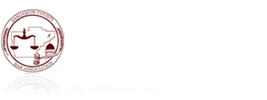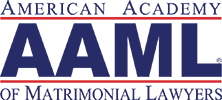Bankruptcy
Bankruptcy law applies to debtors who may be individuals or businesses and who are insolvent and unable to pay creditors. Our attorneys represent both debtors and creditors in Chapter 7, 11, and 13 bankruptcy proceedings. We have assisted hundreds of individuals and businesses in liquidation, wage earner plans, and reorganization cases. We also assist individual and commercial creditors in their efforts to preserve, protect, and retrieve their collateral and to determine such creditors’ rights in bankruptcy proceedings.

Chapter 7 Bankruptcy
Chapter 7 bankruptcy is for individuals in financial difficulty who do not have the ability to pay their existing debts and who are willing to allow their nonexempt property, if any, to pay their creditors. The primary purpose of filing under Chapter 7 is to have your debts discharged. The bankruptcy discharge relieves you after bankruptcy from having to pay most of your debts. Exceptions exist for particular debts, such as domestic support obligations, income taxes, and student loans. Certain liens on property may still be enforced after discharge as well.
Chapter 13 Bankruptcy
Chapter 13 bankruptcy is designed for individuals with regular income who would like to pay all or part of their debts in monthly installments over a period of three to five years, depending on the debts and the debtor’s income. The debor’s repayment plan must be approved by the Bankruptcy Court. After completing the payments under the plan, the debtor will obtain a discharge or his or her remaining debts. Again, certain debts will not be discharged.
Chapter 11 Bankruptcy
Chapter 11 bankruptcy is generally designed for reorganization of a business but is also available to individual debtors. Like Chapter 13, in Chapter 11, creditors are paid through a court-approved plan of reorganization. The Chapter 11 debtor usually has the exclusive right to file a plan of reorganization and must provide creditors with a disclosure statement containing information adequate to enable the creditors to evaluate the plan. The Bankruptcy Court ultimately approves or disapproves the debtor’s proposed plan of reorganization. Under an approved plan, the debtor can reduce its debts by repaying a portion of its debts and discharging other debts. The debtor also can terminate burdensome contracts and leases, recover assets, and rescale its business operations in order to return to profitability. Under Chapter 11, the debtor normally goes through a period of consolidation and emerges with a reduced debt load and a reorganized business.








